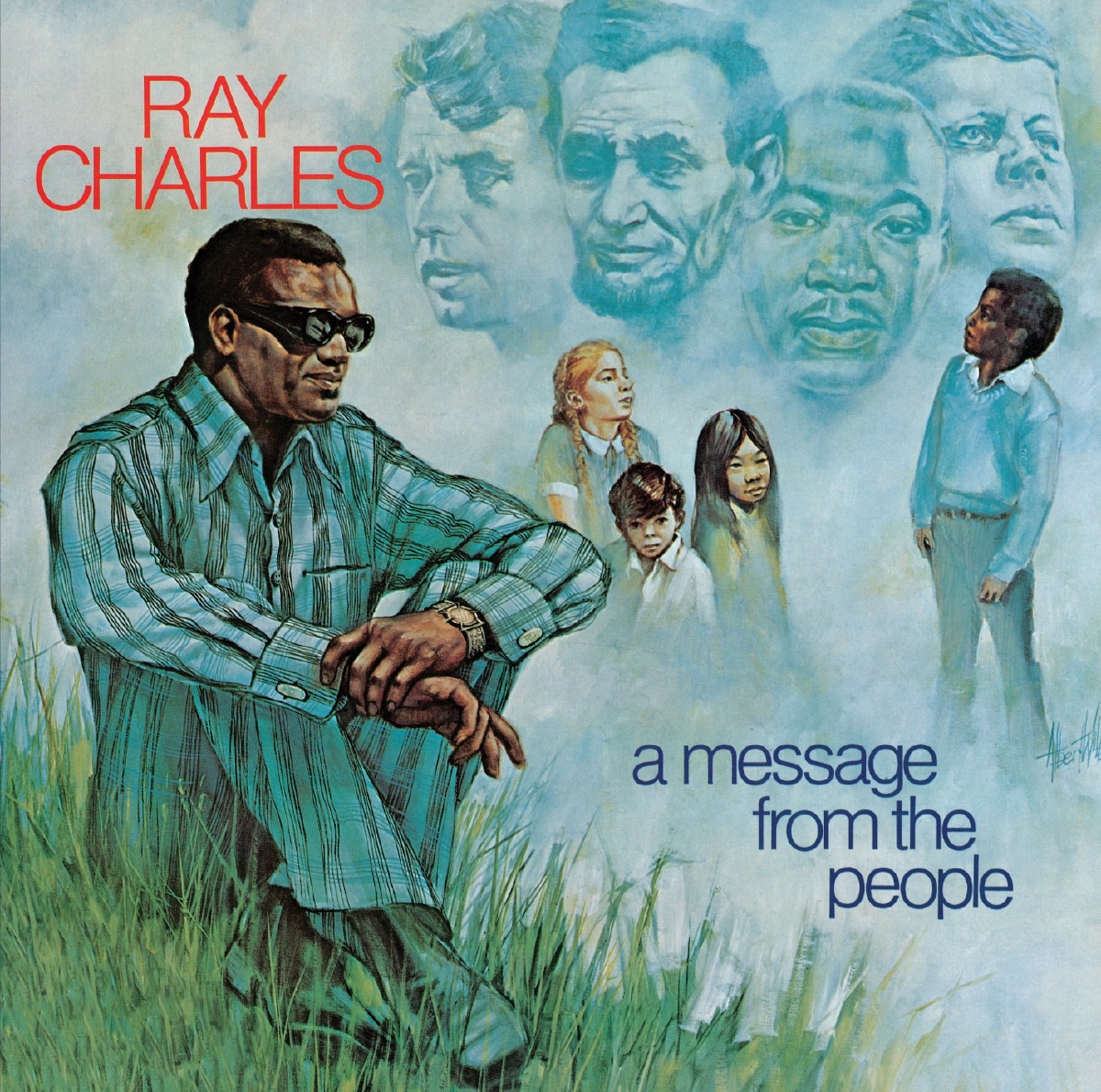
A Message from the People by Ray Charles
Looking back on his experiences touring the American South in the nineteen-fifties, Ray Charles would recall, “My thing was, if I…can only use the toilet in the back, can only go in the back door of the restaurant, fine, fuck it — if that’s the way you want it, it’s your restaurant…but you cannot tell me if I play my music for you, I got to make my people sit in the back. I won’t do that. And for that reason, I got sued a few times…My attitude was: my people made me, and I cannot deal with the fact that they cannot sit anywhere they want to sit. I just cannot deal with that.”
In those days, most Black entertainers, even those of Charles’ stature, were confined to the chitlin’ circuit, a loosely woven network of Southern and Midwestern dives and dancehalls. The threats were enumerable: extortionist promoters, violent audiences, sneering, murderous cops, and, in the dark swelter of the night, the twin terrors — the white hood, the burning cross.
These were the years when Ray lived on the road and immolated the people everywhere he went. But it would be decades before he released his “protest album”, the most overtly political work of his career. By the time he got around to broadcasting it, his message reached precious few ears.
A Message from the People would focus on issues, as Charles recalled, “that you might call a little militant, saying some of the wrong things that were happening in the country.” It certainly achieves that end on tracks like Stevie Wonder’s “Heaven Help Us All”. The urgency palpable in his voice, Brother Ray menaces, over a slow, steady stomp, “Heaven help the Black man if he struggles one more day/ Heaven help the White man if he turns his back away/ Heaven help the man who kicks the man who has to crawl/ Heaven help us all.” But it’s not all darkness: the opener “Lift Every Voice and Sing” turns the Black National Anthem into a syncopated jubilee.
Charles maintains his humor through the recriminations of “Look What They’ve Done To My Song, Ma” (#25 R&B), retrofitting it with a Calypso rhythm and some Gallic nonsense to leaven the bitterness. He brings all his pathos to bear on “Seems Like I Gotta Do Wrong”, a portrait of the downtrodden which Charles turns into an affecting study in oppression. He has less success with “Hey Mister” (#47 R&B), a spirited but strained indictment of bureaucratic indifference.
The back half of A Message from the People finds Charles tempering these criticisms somewhat. “Take Me Home, Country Roads”, despite its mild charms, is a nakedly cynical attempt to placate his conservative fans. The same is true for “Every Saturday Night”, an almost-funky ode to barbeque and bonhomie, tailor-made for the Silent Majority.
A Message from the People concludes with Charles’ version of “America the Beautiful”, certainly the best-known song on the album. It begins with a slow snare tattoo, followed by brief bugle fanfare. Then the music forms a sweet rolling swell which builds and crests, breaks and recedes as Charles extols the virtues of his troubled homeland. His cries rise in volume and intensity until they are truly heart-rending. Along with an aching “Abraham, Martin and John”, it’s the best, most personal thing here, Charles sharing his vision of an idealized, truly inclusive America.
This vision would not be realized in Charles’ lifetime. He once said, “The greatest handicap I’ve ever had — and still have — is my color.” Half a century after A Message from the People’s release, that handicap remains firmly in place for many of our countrymen, as do the hatred and inequity which color the album. This vital and impassioned work, one of the best of his long career, was virtually ignored in its time, stalling at #52 on the album charts. It must’ve been the last straw for the top brass, because his next release, Through The Eyes Of Love, would be the very last he’d release for ABC Records. And so A Message from the People can be viewed as a kind of swansong — an American Genius pouring out his heart and soul, using his elevated position in the cultural firmament to sound the cry of his people one last time.
Ray Charles’ A Message from the People is available in both digital and physical formats.